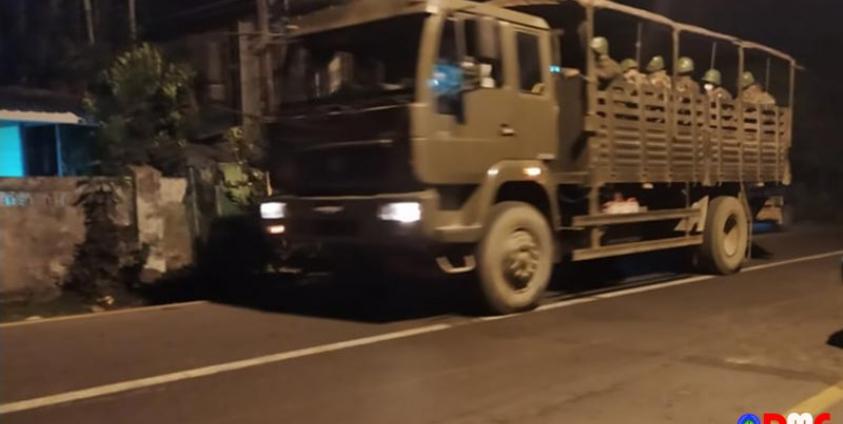Eight human rights groups have called on the international community to take action on behalf of victims of torture by the Myanmar military, using the occasion of International Day in Support of Victims of Torture on June 26 to do so.
The Assistance Association for Political Prisoners (AAPP), one of the eight signatory groups, has said that nearly 6,300 people have been arrested by the junta since it seized power on February 1, with 5,104 still detained as of June 24.
“Many of those arrested are subject to various forms of torture and ill-treatment. There are reports of widespread and systematic mistreatment in detention, including beatings, sleep deprivation, and being denied the use of a bathroom,” said the statement from the eight organisations, which include Asia Justice and Rights (AJAR), the All Arakan Students’ & Youths’ Congress (AASYC), and the Women’s League of Burma.
The groups called on the international community not to recognise the junta, which calls itself the State Administration Council, and to refer the situation in Myanmar to the International Criminal Court (ICC), among other recommendations.
The statement also laid out several action items for both the Association of Southeast Asian Nations (ASEAN) and the National Unity Government (NUG), which was formed in April as a direct challenge to the legitimacy and authority of Myanmar’s military regime.
A “Five-Point Consensus” was reached at an ASEAN Summit on Myanmar held in Jakarta, Indonesia, on April 24, which was also attended by Myanmar coup leader Senior-General Min Aung Hlaing. The points included calling for an end to violence in Myanmar and dialogue between the military and the opposition, which an ASEAN special envoy will be designated to help facilitate, as well as ASEAN agreeing to provide humanitarian assistance.
Saturday’s statement from the human rights groups called on ASEAN to set a timeline for the implementation of the five points agreed upon and to support an international arms embargo against the junta.
The rights organisations also had six recommendations for the NUG, including that it documents the use of torture by security forces; commit to bringing perpetrators to justice; commit to signing and ratifying the UN Convention Against Torture (CAT); commit to preventing torture by providing awareness training to security forces under NUG’s authority, and commit to establishing meaningful transitional justice mechanisms to address victim’s rights to truth and reparations.
“Torture has profound, long-lasting consequences for survivors and their families. While they struggle with physical injuries, psychological trauma, social exclusion and economic hardships, access to basic support services is largely lacking in Burma [Myanmar], in particular in the current context,” the statement said.
“Torture survivors and their families require access to health and medical care, psycho-social support, legal assistance and livelihood opportunities. Plans need to be made to address their immediate as well as long-term needs, which should also include acknowledgment of survivors’ experience and efforts to ensure non-repetition.”
Nearly five months since the coup, resistance to the junta continues to be formidable, with “flash mob” street protests and a coordinated Civil Disobedience Movement, as well as armed opposition, among the ways that anti-regime forces are pushing back against military rule.








